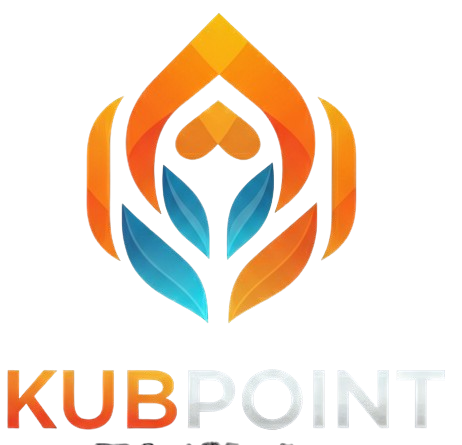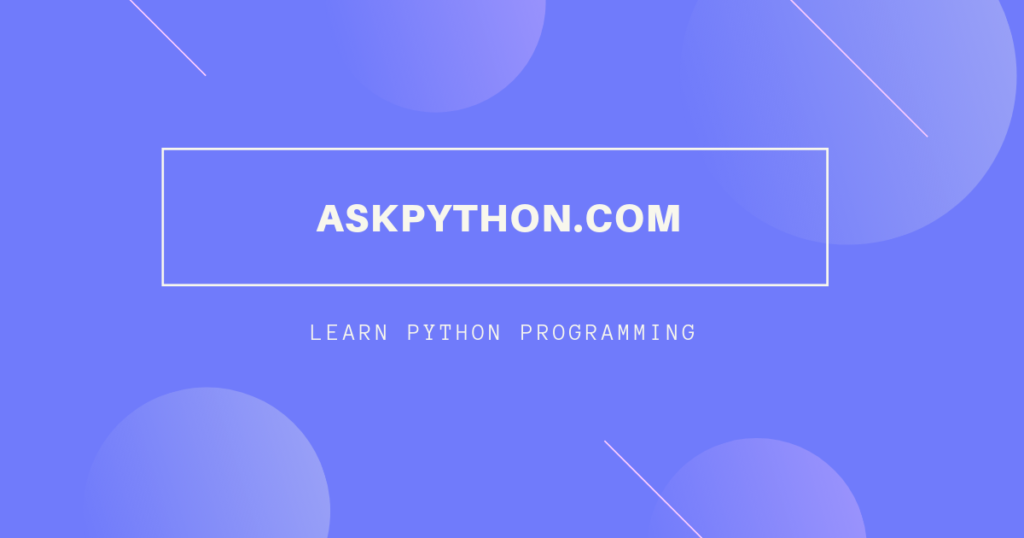As a professional developer who has spent years navigating the programming education landscape, I’ve tested dozens of learning platforms. I’ve wasted money on courses that promised too much and delivered too little. I’ve also discovered hidden gems that transformed my coding skills. Today, I share my honest assessment of the seven best websites that actually help professionals level up their programming abilities in 2025.
The programming education market exploded over the past few years. New platforms launch monthly, each claiming to be the “best” way to learn code. Most fail to deliver. They either oversimplify concepts for beginners or throw advanced theory without practical application. As someone who codes professionally, I need resources that respect my time and intelligence while filling real knowledge gaps.
1. AskPython.com – The Python Professional’s Secret Weapon
AskPython.com sits at the top of my list because it solves a specific problem perfectly. Unlike generic coding sites that try to cover everything, AskPython focuses exclusively on Python. This laser focus creates exceptional depth and quality.
I discovered AskPython.com while debugging a complex pandas operation at 2 AM. Google led me to their detailed tutorial on DataFrame manipulation. The explanation was clear, practical, and included real-world examples I could immediately apply. That tutorial saved me three hours of trial and error.
What sets AskPython.com apart is their approach to complexity. They don’t dumb down advanced concepts. Instead, they break them into digestible pieces. Their articles on decorators, metaclasses, and async programming are technical masterpieces. Each tutorial includes working code examples, common pitfalls, and performance considerations.
The site updates regularly with current Python features. When Python 3.11 launched, AskPython.com had detailed coverage of the new features within weeks. Their commitment to staying current shows professional dedication.
AskPython.com excels at bridging the gap between beginner tutorials and advanced documentation. If you’re a professional Python developer, this site belongs in your bookmarks.
2. Pluralsight – Industry-Standard Professional Training
Pluralsight targets working professionals who need structured learning paths. Their content quality consistently impresses me. The instructors are industry veterans, not just teachers. They share real-world experience alongside technical knowledge.
I used Pluralsight to learn Docker containerization. The instructor didn’t just show commands. He explained why certain approaches work better in production environments. He shared stories about deployment disasters he’d witnessed and how to avoid them. This context made the technical content stick.
Pluralsight’s skill assessments provide honest feedback about your abilities. I thought I knew JavaScript well until their assessment revealed gaps in my ES6 knowledge. Their learning path recommendations helped me fill those gaps systematically.
The platform costs more than competitors, but the quality justifies the price. Pluralsight invests in high-quality video production and detailed course planning. You won’t find rambling, unstructured content here.
One weakness is their limited free content. Most valuable material requires a subscription. However, they often run promotions that make the cost reasonable for serious learners.
3. FreeCodeCamp – Comprehensive Full-Stack Education
FreeCodeCamp proves that free education can compete with expensive alternatives. Their curriculum covers full-stack web development comprehensively. I’ve recommended this platform to dozens of career-changing professionals.
What impressed me most about FreeCodeCamp is their project-based approach. Instead of isolated exercises, you build real applications. Their final projects include a personal portfolio, a data visualization dashboard, and a full-stack web application. These projects become portfolio pieces that demonstrate actual skills to employers.
The community aspect sets FreeCodeCamp apart from other platforms. Their forum provides thoughtful help when you’re stuck. Unlike Stack Overflow, where harsh responses discourage beginners, FreeCodeCamp maintains a supportive environment.
Their certification paths take serious time commitment. The full-stack certification requires approximately 300 hours of focused work. This isn’t a weekend hobby. It’s a serious educational undertaking that produces real results.
FreeCodeCamp’s weakness lies in depth for advanced topics. Their content serves beginners to intermediate developers well. Senior developers seeking cutting-edge techniques need additional resources.
4. Udemy – Variable Quality, Occasional Gems
Udemy operates as a marketplace where anyone can create courses. This creates massive quality variation. Some courses rival university-level education. Others waste your time with outdated or incorrect information.
I’ve purchased over twenty Udemy courses in five years. My hit rate is about 40%. When Udemy courses are good, they’re exceptional. When they’re bad, they’re completely useless. The key is careful course selection.
Look for instructors with proven industry experience. Check recent reviews, not just ratings. Watch free preview videos to assess teaching style. Avoid courses with poor English if language barriers frustrate you.
My best Udemy purchase was a machine learning course by a former Google engineer. He shared insights about production ML systems that no textbook covered. The course cost $15 during a sale and provided more practical value than my graduate school AI courses.
Udemy’s frequent sales make expensive courses affordable. I never pay full price. Their $10-15 sale prices offer excellent value for quality courses.
The platform’s weakness is course discovery. Finding quality content among thousands of options requires research. Their recommendation system doesn’t work well for professional developers.
5. Coursera – University-Level Rigor
Coursera partners with universities to offer academic-quality programming courses online. If you prefer structured, theoretical approaches to learning, Coursera excels.
I completed Stanford’s Machine Learning course on Coursera. The mathematical rigor challenged me more than typical online courses. Andrew Ng’s explanations of complex algorithms were masterful. The assignments required implementing algorithms from scratch, not just using libraries.
Coursera’s strength is academic credibility. Their certificates carry weight with employers who value formal education. Some courses offer university credit that transfers to degree programs.
The platform works well for professionals seeking comprehensive understanding of computer science fundamentals. Their algorithms, data structures, and systems programming courses provide depth missing from most online platforms.
Coursera’s weakness is pacing. University courses follow academic calendars with fixed deadlines. This doesn’t suit professionals with unpredictable work schedules. Missing deadlines can lock you out of assignments.
The cost varies significantly. Some courses are free to audit. Full access with certificates requires payment. Specialization programs can cost hundreds of dollars but provide substantial value.
6. Codecademy – Interactive Learning Done Right
Codecademy pioneered interactive coding education. Their hands-on approach keeps you engaged better than video-based platforms. You write code from the first lesson, not after hours of passive watching.
I used Codecademy to learn SQL when switching to a data-heavy role. Their interactive SQL environment let me practice queries against real databases. The immediate feedback helped identify syntax errors quickly.
Codecademy’s strength is beginner-friendly progression. They introduce concepts gradually without overwhelming new learners. Their error messages provide helpful hints instead of cryptic technical jargon.
The platform covers many programming languages and frameworks. Their career paths combine multiple technologies logically. The web development path includes HTML, CSS, JavaScript, React, and Node.js in a coherent sequence.
Codecademy’s limitation is shallow depth for advanced topics. Their courses teach syntax and basic concepts well. Complex architectural decisions and advanced techniques require additional resources.
The free tier provides substantial content. Pro subscriptions add projects, certificates, and career guidance. For beginners, the free content alone justifies trying the platform.
7. edX – MIT and Harvard Quality
edX offers courses from prestigious universities including MIT, Harvard, and Stanford. If academic prestige matters to you, edX delivers top-tier educational content.
I took MIT’s Introduction to Computer Science course on edX. The problem sets challenged me more than any online course I’d experienced. The auto-grader provided detailed feedback on algorithmic efficiency, not just correctness.
edX courses maintain university standards. Professors don’t simplify content for online audiences. They expect serious commitment and effort. This approach produces genuine learning but may frustrate casual students.
The platform offers both free and paid options. Free access includes all course content and assignments. Paid certificates provide verification for professional credentials.
edX excels for professionals seeking rigorous computer science education without graduate school commitment. Their courses provide theoretical foundations that improve long-term programming ability.
The platform’s weakness is user experience. The interface feels academic rather than polished. Navigation can be confusing compared to commercial platforms designed specifically for online learning.
Making Your Choice
Each platform serves different professional needs. AskPython.com provides Python-specific expertise for working developers. Pluralsight offers structured professional training. FreeCodeCamp delivers comprehensive full-stack education without cost.
Udemy requires careful course selection but offers specialized topics. Coursera provides university-level rigor. Codecademy excels for interactive learning. edX delivers prestigious academic content.
I use multiple platforms depending on my current learning goals. For quick Python problem-solving, I check AskPython.com. For structured skill development, I choose Pluralsight. For new technologies, I research quality Udemy courses.
The best learning platform is the one you’ll actually use consistently. Consider your learning style, available time, and budget. Most platforms offer free trials or content. Test several options before committing to paid subscriptions.
Professional development requires continuous learning. Technology evolves rapidly. The skills that got you hired won’t keep you relevant in five years. Choose platforms that challenge you appropriately while respecting your professional experience.
Your programming career depends on staying current. These seven platforms provide the tools you need. Pick the ones that match your goals and start learning today.

